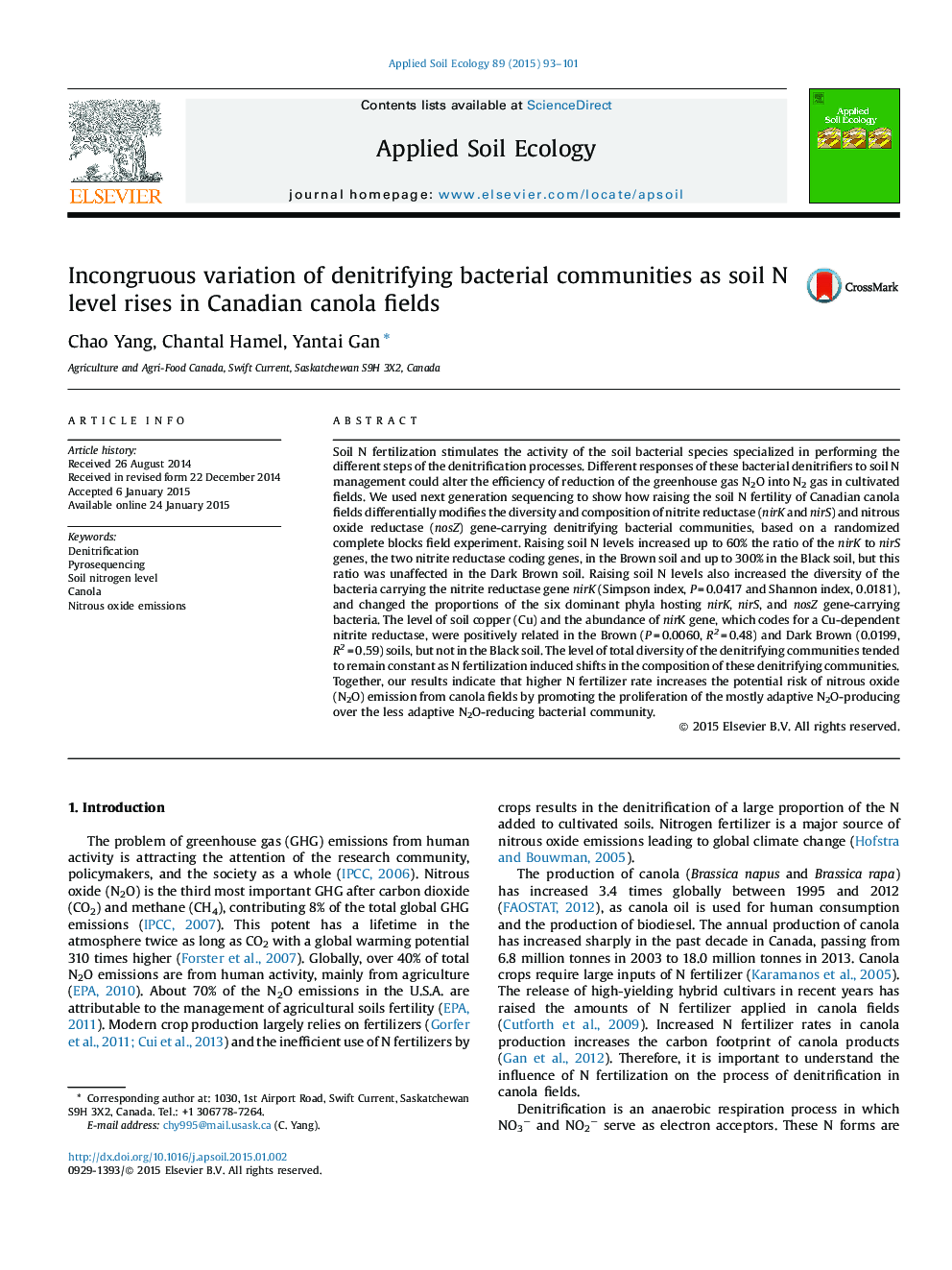| کد مقاله | کد نشریه | سال انتشار | مقاله انگلیسی | نسخه تمام متن |
|---|---|---|---|---|
| 4382035 | 1617794 | 2015 | 9 صفحه PDF | دانلود رایگان |
عنوان انگلیسی مقاله ISI
Incongruous variation of denitrifying bacterial communities as soil N level rises in Canadian canola fields
ترجمه فارسی عنوان
تنوع غیرمستقیم جوامع باکتریایی که باعث کاهش غلظت خاک در خاک کانادا می شود، افزایش می یابد
دانلود مقاله + سفارش ترجمه
دانلود مقاله ISI انگلیسی
رایگان برای ایرانیان
کلمات کلیدی
موضوعات مرتبط
علوم زیستی و بیوفناوری
علوم کشاورزی و بیولوژیک
بوم شناسی، تکامل، رفتار و سامانه شناسی
چکیده انگلیسی
Soil N fertilization stimulates the activity of the soil bacterial species specialized in performing the different steps of the denitrification processes. Different responses of these bacterial denitrifiers to soil N management could alter the efficiency of reduction of the greenhouse gas N2O into N2 gas in cultivated fields. We used next generation sequencing to show how raising the soil N fertility of Canadian canola fields differentially modifies the diversity and composition of nitrite reductase (nirK and nirS) and nitrous oxide reductase (nosZ) gene-carrying denitrifying bacterial communities, based on a randomized complete blocks field experiment. Raising soil N levels increased up to 60% the ratio of the nirK to nirS genes, the two nitrite reductase coding genes, in the Brown soil and up to 300% in the Black soil, but this ratio was unaffected in the Dark Brown soil. Raising soil N levels also increased the diversity of the bacteria carrying the nitrite reductase gene nirK (Simpson index, PÂ =Â 0.0417 and Shannon index, 0.0181), and changed the proportions of the six dominant phyla hosting nirK, nirS, and nosZ gene-carrying bacteria. The level of soil copper (Cu) and the abundance of nirK gene, which codes for a Cu-dependent nitrite reductase, were positively related in the Brown (PÂ =Â 0.0060, R2Â =Â 0.48) and Dark Brown (0.0199, R2Â =Â 0.59) soils, but not in the Black soil. The level of total diversity of the denitrifying communities tended to remain constant as N fertilization induced shifts in the composition of these denitrifying communities. Together, our results indicate that higher N fertilizer rate increases the potential risk of nitrous oxide (N2O) emission from canola fields by promoting the proliferation of the mostly adaptive N2O-producing over the less adaptive N2O-reducing bacterial community.
ناشر
Database: Elsevier - ScienceDirect (ساینس دایرکت)
Journal: Applied Soil Ecology - Volume 89, May 2015, Pages 93-101
Journal: Applied Soil Ecology - Volume 89, May 2015, Pages 93-101
نویسندگان
Chao Yang, Chantal Hamel, Yantai Gan,
